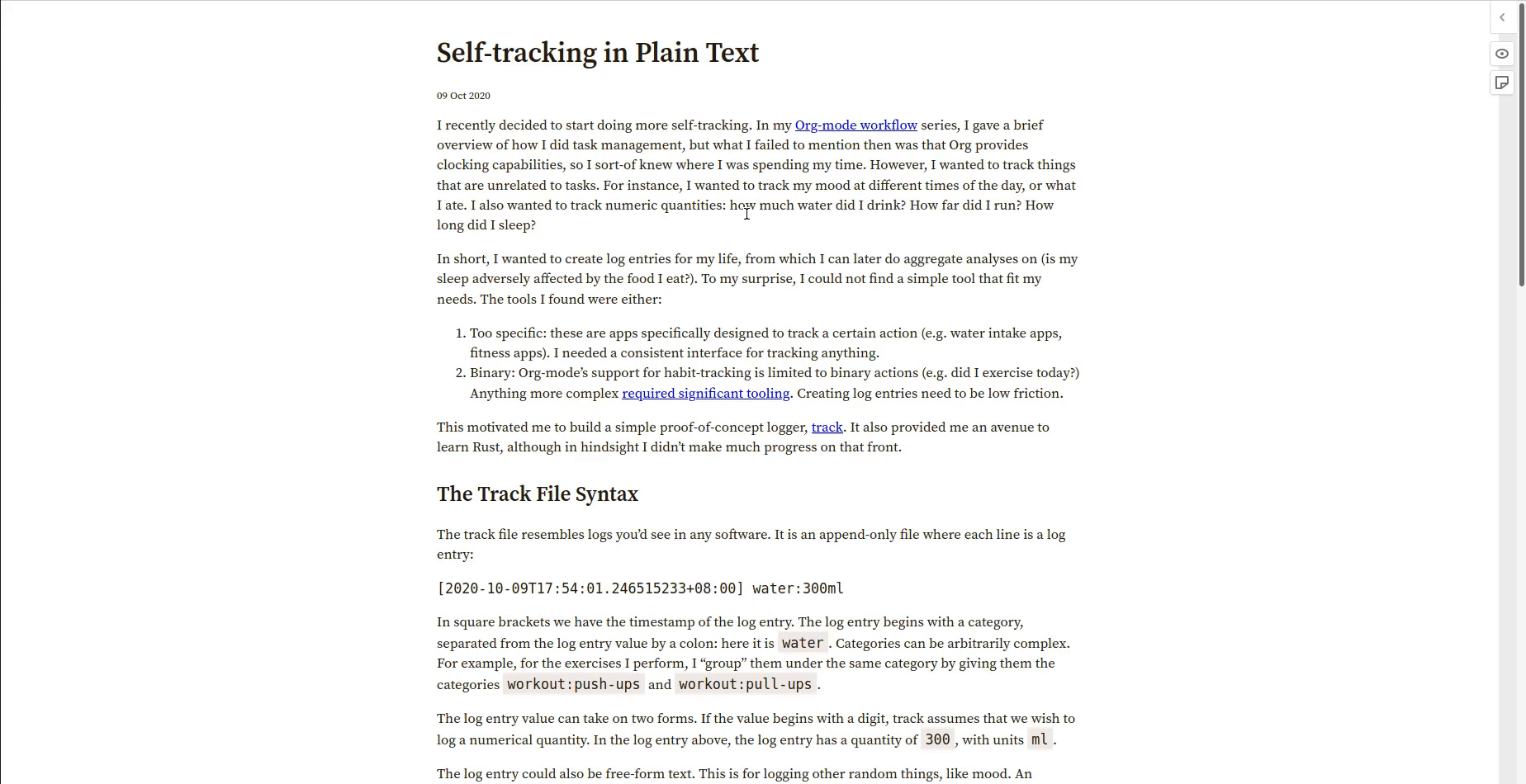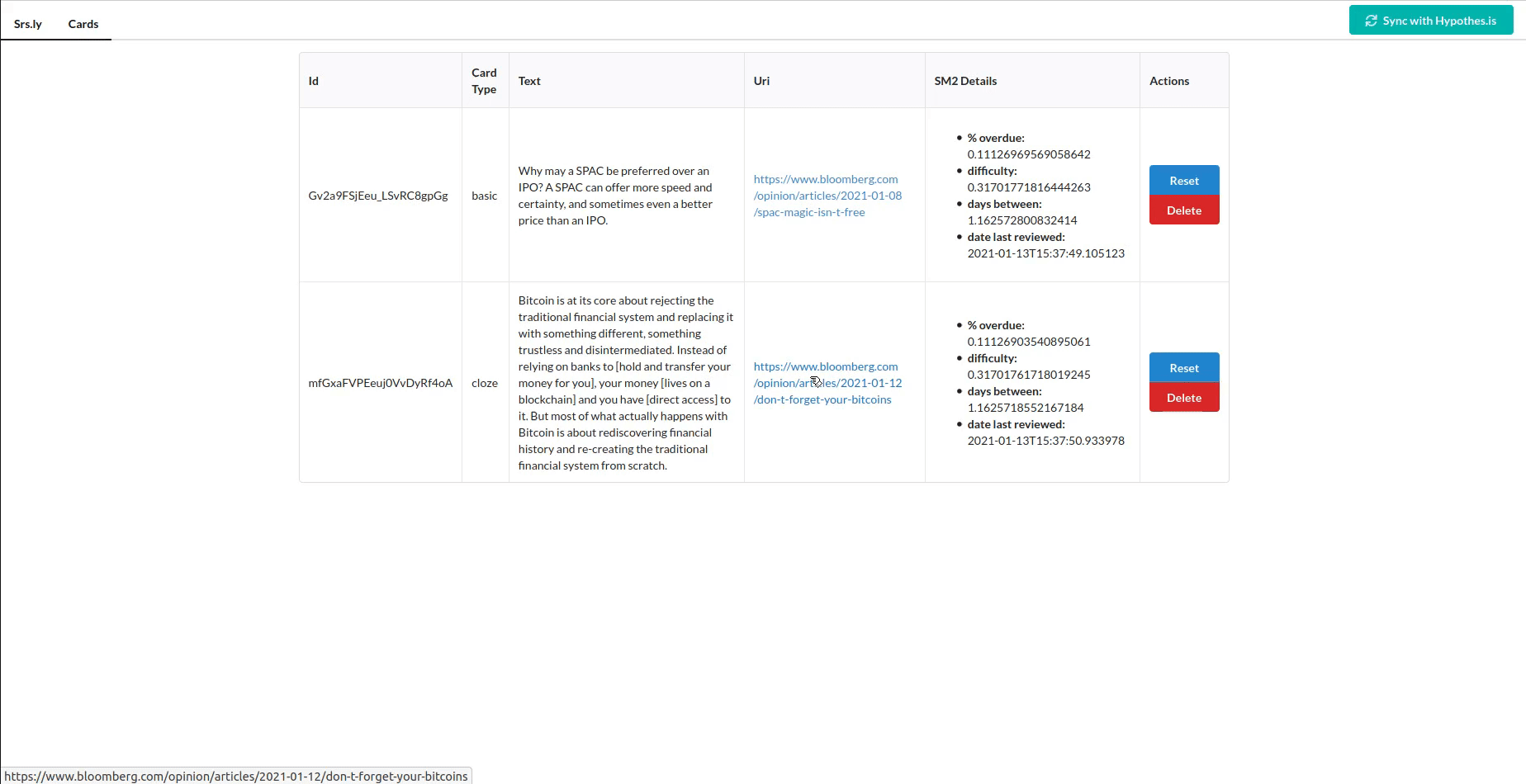Spaced Repetition?
As a maintainer of a project within the personal knowledge management space, spaced repetition is something I get asked about a lot. Do I use spaced repetition? How do I implement it within my workflows?
To be honest I could never get spaced repetition systems to stick. I’d already streamlined the process of creating cards for Anki, but it still required so much effort, with little tangible benefit. Eventually, I started using pre-made decks on Anki, primarily for learning new languages. Creating flashcards is also an extremely involved practice that requires a great deal of mastery. A senior of mine had recently sent me Andy’s esay on writing good prompts, and I can safely say that I’d been doing it all wrong.
In a way spaced repetition is like exercising: the benefits are well-known, but because it takes so much effort (and much more so to get it right), people don’t do it. To this end, Andy is building a mnemonic medium called Orbit, for which he has currently provided access to some content creators to embed flashcards within their published content. This is a good way to help content creators promote understanding of the content they’ve written, transforming their articles into a reading comprehension task. However, I thought that the onus of prompt creation should lies on content consumers. When I hop around on the interwebs, I usually have something I’m already thinking about that is slightly tangential from the essay contents. I hypothesise that Orbit would have greater potential if the content consumer is also able to design and inject their own prompts based on the additional context. I also really like that the prompts are localized: they can be carefully placed in sections of a long essay to test content understanding (see Timeful Texts), and it’s easy to revisit the corresponding passage if performance on the prompt is poor.
What would make spaced repetition stick for me? I laid out a few requirements:
- It should be easy to create my own contextualized prompts
- Conducting a review should be easy, and I should be able to quickly hop back to the prompt context if needed
I found some services that provide this, but they all have their limitations:
- Polar is an annotation tool that has AI flashcards creation as well as export to Anki. However, the free version is limited to 250 document captures, and the annotations are limited to Polar’s offline captures.
- Readwise uses spaced repetition to resurface highlights in the book, but Andy’s research has shown that these sort of prompts are often insufficient.
Srsly?
Perhaps the hackathon spirit had rubbed off me (I was a judge for a hackathon
this weekend), so I spent a day building 1 a proof-of-concept tool, which I
named srs.ly.
srs.ly piggybacks off hypothes.is. While Hypothes.is was built for
collaborative annotation, it has a fantastic interface for annotating anything
on the web, and provides a simple API for fetching user annotations. This
provided a good base for creating contextualized prompts. I decided a prompt
would be any annotation I made with the tag #srsly.
I added support for two types of cards. Basic cards were question/answer cards, where the question and answer were split by two newlines. An example of such a prompt would look like:
Who invented the light bulb?
Thomas Edison
Cloze cards simply have text within square brackets redacted. Any number of cloze deletions are supported.
The first three elements of the periodic table are [Hydrogen], [Helium] and [Lithium]
Here’s me creating these two fake prompts on an old blog post of mine:

Next, I hop over to the webapp I built to pull down the new prompts:

I implemented the SM2 spaced repetition algorithm described in a blog post I found. I can now begin my review session, which looks exactly like Anki:

And that’s it! Now I have a simple way to create contextualized prompts, and a systematic way to review them. I hope this will finally get me into the habit of using spaced repetition to promote understanding of everything I find on the internet.
All of the source code for this is hosted on my GitHub repo. The code is messy, but I’m not a web dev and it works, so 🤷. I’m hoping Andy brings something similar into Orbit.
Let me know if you have any thoughts or ideas via email.
(Update: I’ve made the service free-to-use at https://srsly.netlify.app/, let me know what you think!)
- of which 70% was fighting React [return]